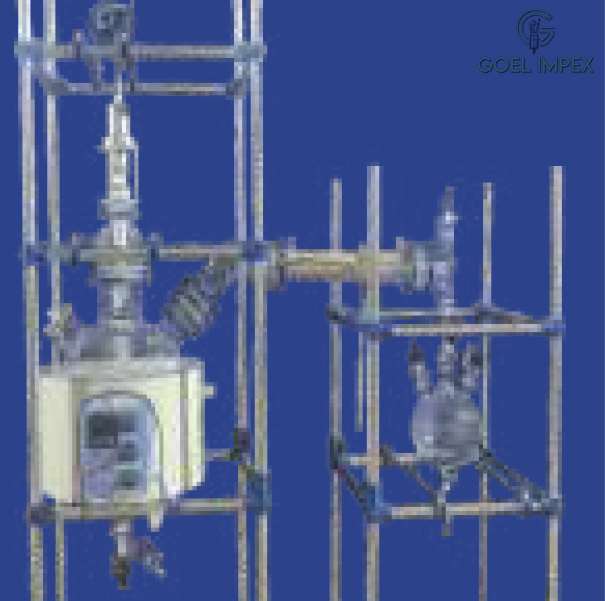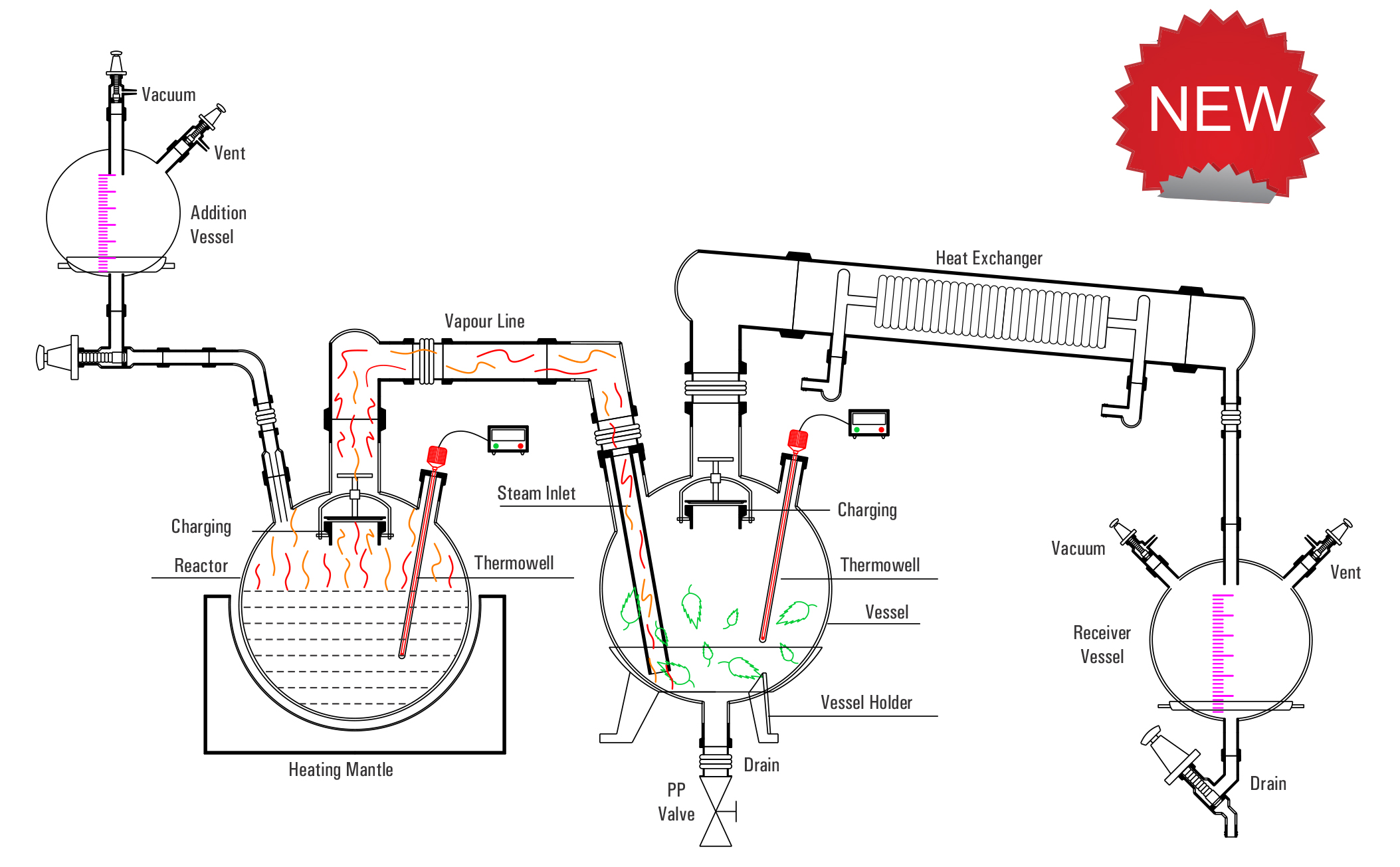An essential oil is a concentrated hydrophobic liquid containing volatile (easily evaporated at normal temperatures) chemical compounds from plants. Essential oils are also known as volatile oils, ethereal oils, aetherolea, or simply as the oil of the plant from which they were extracted
Essential oils are generally extracted by distillation, often by using steam. We provide two modes through which one can produce essential oils viz. Steam Distillation Unit & Vacuum Distillation Unit.
1. Steam Distillation Unit
The units are available in vessel sizes of 10, 20, 50, 100 & 200 L and is suitable for operation under atmospheric pressure and full vacuumSteam distillation as a whole is a separation process which consists of distilling water together with other volatile and non-volatile components. The water is heated up in the spherical vessel separately and the steam from the boiling water goes into the reactor where it reacts with the masses of trees and plants and further carries the vapor of the volatiles to a condenser, where both are cooled and return to the liquid or solid state; while the non-volatile residues remain behind in the reactor.
|
Unit Cat. Ref. |
Reactor Capacity |
Mantle KW |
Addition Vessel |
Condenser HTA (M2) |
Receiver Vessel |
|
EOSD 10 |
10 L |
1 |
5 L |
0.35 |
5 L |
|
EOSD 20 |
20 L |
1.8 |
5 L |
0.50 |
5 L |
|
EOSD 50 |
50 L |
3.6 |
20 L |
1.50 |
20 L |
|
EOSD 100 |
100 L |
5.4 |
20 L |
1.50 |
20 L |
|
EOSD 200 |
200 L |
8.1 |
50 L |
2.25 |
50 L |
2. Vacuum Distillation Unit
Vacuum distillation is a distillation performed under reduced pressure, which allows the purification of compounds not readily distilled at ambient pressures or simply to save time or energy. This technique separates compounds based on differences in boiling points. This technique is used when the boiling point of the desired compound is difficult to achieve or will cause the compound to decompose. A reduced pressure decreases the boiling point of compounds. The steam from the boiling water carries the vapor of the volatiles to a condenser, where both are cooled and return to the liquid or solid state; while the non-volatile residues remain behind in the boiling container.
|
Unit Cat. Ref. |
Reactor Capacity |
Mantle KW |
Addition Vessel |
Condenser HTA (M2) |
Receiver Vessel |
|
EOVD 10 |
10 L |
1 |
5 L |
0.35 |
5 L |
|
EOVD 20 |
20 L |
1.8 |
5 L |
0.50 |
5 L |
|
EOVD 50 |
50 L |
3.6 |
20 L |
1.50 |
20 L |
|
EOVD 100 |
100 L |
5.4 |
20 L |
1.50 |
20 L |
|
EOVD 200 |
200 L |
8.1 |
50 L |
2.25 |
50 L |







